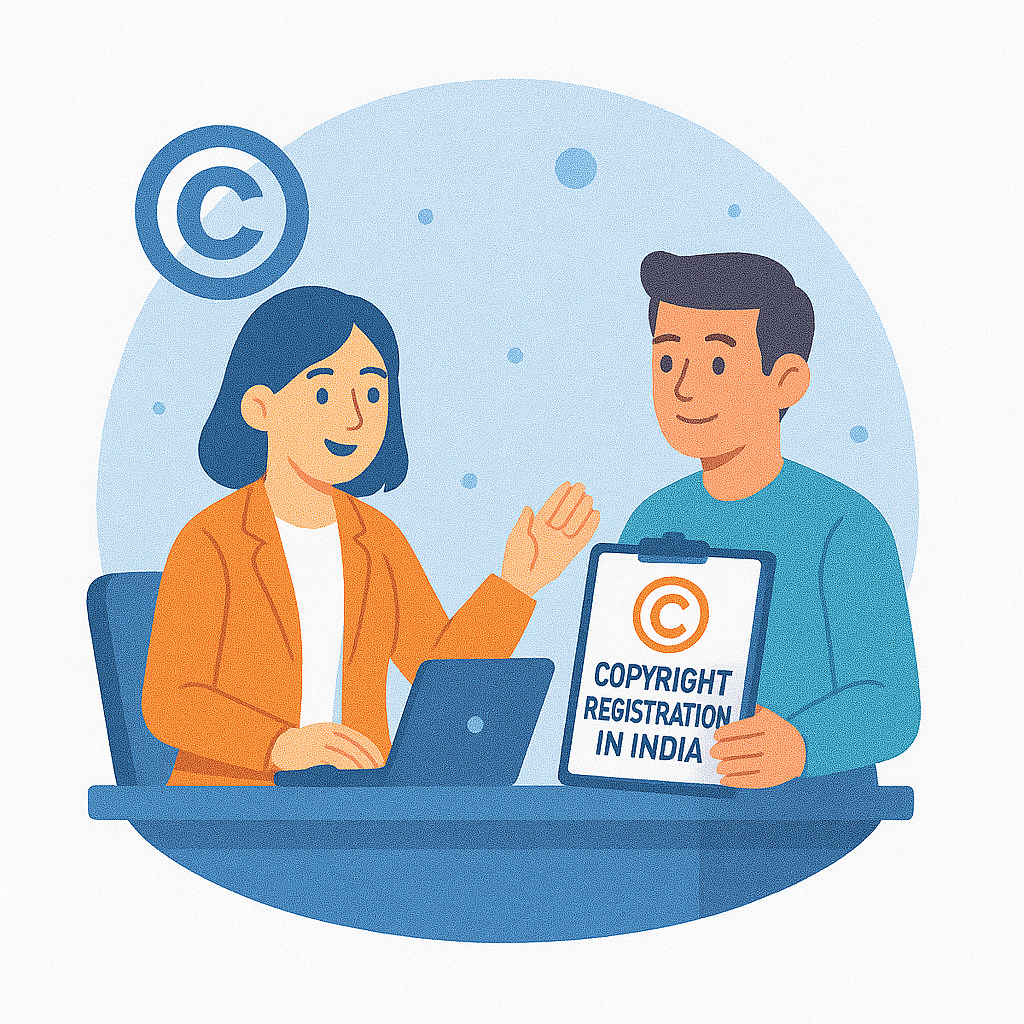
Copyright Registration in India - An Overview
Copyright protects your creative work in books, music, videos, paintings, and more. With registration, you secure legal ownership and enforcement rights under the Copyright Act, 1957.
Read MoreAll you need to know about Copyright Registration
Introduction
Copyright grants creators legal rights over their original works. It prevents unauthorized reproduction and provides the right to license, sell or transfer ownership of the work.
What works does Copyright Protect?
- Literary works (books, scripts, etc.)
- Musical compositions
- Artistic works (paintings, drawings, designs)
- Cinematographic films & sound recordings
- Computer software and digital content
Why is Copyright Registration important?
- Exclusive rights to reproduce, distribute and communicate work.
- Legal remedy against infringement.
- Proof of ownership in legal proceedings.
- Increases commercial value of creative works.
Documents Required
Basic Information
Applicant details including name, address, nationality and nature of work.
Soft Copies & CD
Submit 2 soft copies and 3 hard copies of the work. For computer software, submit source code with few pages.
Trademark Certificate (if applicable)
If work contains logos, a TM certificate or NOC from owner is needed.
Power of Attorney
Signed POA if filed by an attorney/agent.
Procedure for Copyright Registration
Application Filing
File Form IV with details of the applicant, nature of work, and copies of the work.
Diary Number Issued
After submission, a diary number is allotted.
Waiting Period
A waiting period of 30 days is given for objections.
Examination
Registrar examines the application for discrepancies or objections.
Hearing (if required)
If objections raised, hearings may be scheduled.
Registration Certificate
Once approved, a certificate of registration is issued.
Why Copyright Registration?
- Legal Protection: Prevents unauthorized use of work and enables enforcement.
- Branding & Goodwill: Enhances credibility of creative works.
- After the Creator’s Death: Copyright continues for 60 years post author’s death.
- Prima Facie Evidence: Certificate serves as evidence in legal proceedings.
- Public Record: Work becomes part of the official copyright register.
- Commercial Value: Adds monetary worth to creative works.
- Market Recognition: Helps establish brand presence.
- Restricts Unauthorised Reproduction: Protects against piracy.
- Global Protection: Supports rights across signatory countries.
Copyright Process in India
